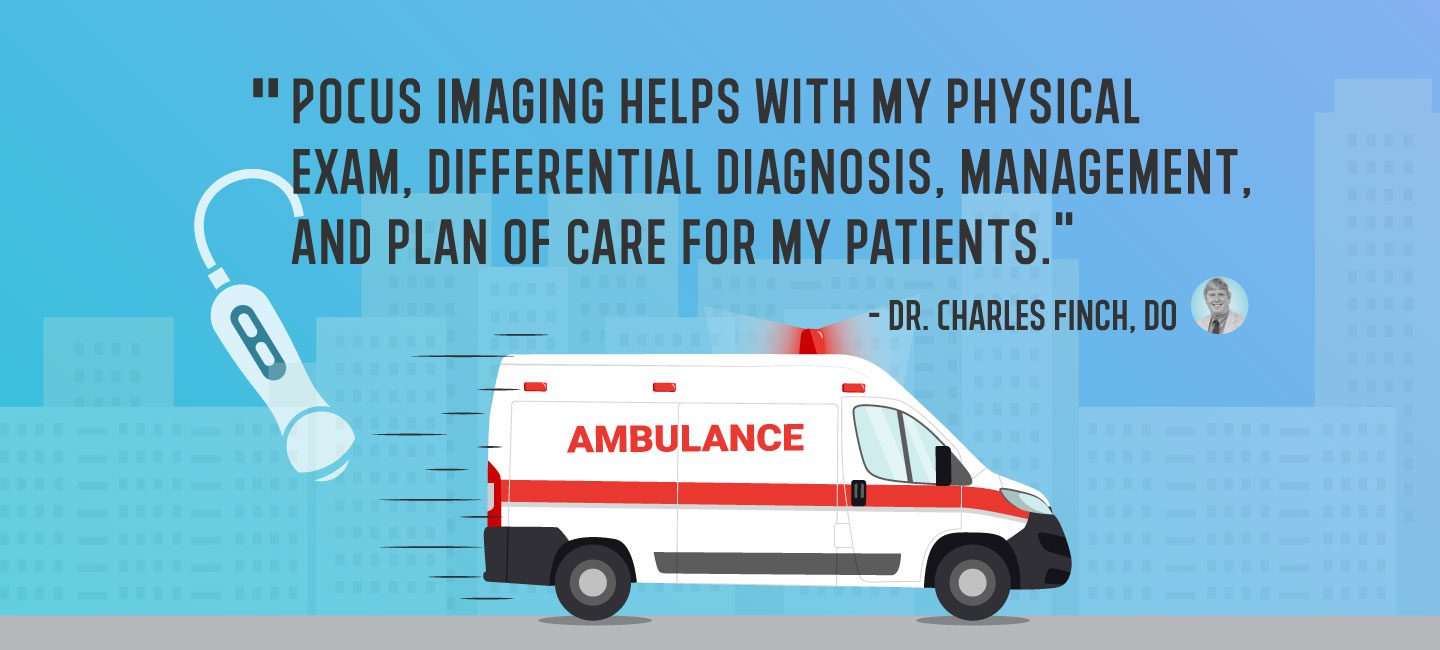The healthcare community is composed of professionals, students, educators, volunteers, and others dedicated to improving patient outcomes and elevating the standards of care around the world. We practice across a range of specialties so that patients can receive the specialized care they need and deserve. We have made advancements in medical practices and technologies that support patients and healthcare professionals alike.
The achievements and continued growth of point-of-care ultrasound (POCUS) is one example of how we have come together to incorporate advancements for the benefit of our patients. This innovation has redefined medicine, and we have seen its value and implementation expand. Initially utilized primarily for imaging and radiology, this modality has become increasingly intersectional across medical specialties. This resource elevates our skills and supports our ability to provide more efficient care to our patients.
One specialty in particular that has seen its students and professionals alike express interest in POCUS, and benefit from the integration of it into their education and practice, is Emergency Medicine (EM).

As noted in a statement published by the American College of Emergency Physicians (ACEP), “Emergency medicine encompasses planning, oversight, and medical direction for community emergency medical response, medical control, and disaster preparedness. Emergency medicine professionals provide valuable clinical, administrative, and leadership services to the emergency department and other sectors of the health care delivery system.”
Around the world, emergency medicine professionals work in a broad range of settings such as traditional emergency departments (EDs), disaster sites, and urgent care clinics. In both rural and urban settings, the portable nature of POCUS enables EM specialists to conduct bedside scans that allow them to determine the best course of care.
The Future of Emergency Medicine: 6 Technologies That Make Patients The Point-of-Care addresses how advancements and innovations in technology allow healthcare professionals practicing emergency medicine to continue to put their patients first. Regarding POCUS, the article states how “pocket-sized, user-friendly and portable diagnostic devices make it easier and faster to treat a patient on the spot.”
As POCUS has become increasingly integrated into the bedside routine of emergency medicine professionals, individuals in this specialty are continually on the lookout for opportunities to engage with this modality and add it to their toolbox.
Emergency Medicine specialist in Sri Lanka, Dr. Madurangi Ariyasinghe, spoke to the value POCUS brings to their practice. When surveying critically ill patients, they explained how they use “POCUS parallel to clinical assessment.” They have also found that POCUS “increases the possibility of identifying missed diagnosis” and speeds up “the management of critically ill patients.”
Dr. Finch, a Board Certified Osteopathic Emergency Physician and Professor of Emergency Medicine engages with POCUS in his clinical practice and as an educator at Midwestern University’s Arizona College of Osteopathic Medicine.
“POCUS allows me a safe, fun, and accurate ability to integrate my clinical practice at the bedside focusing on the patient and allowing the patient to be part of the process,” said Dr. Finch. “POCUS imaging helps with my physical exam, differential diagnosis, management, and plan of care for my patients.”
Both clinically and academically, Dr. Finch has worked intimately with the Point-of-Care Ultrasound (POCUS) Certification Academy™, who has helped him see his dreams come to fruition. As a result of their “interest, credibility, and willingness to help,” Dr. Finch became certified through the POCUS Certification Academy and worked with them to create additional educational opportunities within the medical school.
“I took it from an education opportunity, leveraged that, and now I’m using it not only in my own practice but also within the educational realm,” said Dr. Finch. At his medical school, he set up a “vertical curriculum” that integrates ultrasound into various courses and provides students the opportunity to learn POCUS from the start of their studies and receive certification before graduation.
As Dr. Finch’s testimony and experience demonstrate, no matter where we are in our journey as medical providers, the incorporation of POCUS into our practice shows our commitment to providing a higher standard of care. For emergency medicine professionals, POCUS allows them to essentially “carry a department’s worth of diagnostic tools in their briefcase.” It streamlines the diagnostic process and prioritizes patient care.
POCUS presents us with advantages that allow us to leverage our knowledge and skills to benefit our patients. Whether in emergency medicine or other specialties, this modality continues to pave a path forward towards a future of more accessible, better global care.
Learn more about the POCUS Certification Academy’s Emergency Medicine Certification!




















